Estimated Reading Time: 6 Minutes
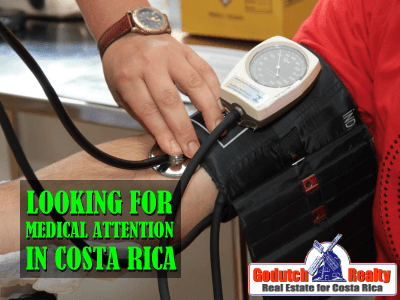
When moving to Costa Rica you’ll need medical attention. So what’s available when you retire here?
While we’re still waiting for our “cedula de residencia” as “pensionados” we’ve kept our MediCare in the States. Just in case there is a real medical necessity.
So, if something major required a return to our old home State, we would be covered.
In addition, my wife’s and my MediCare supplemental policies include emergency medical coverage for the first 60 days each time we leave. This feature renews each time we exit the States.
International Coverage
This international coverage doesn’t cover non-emergency medical attention and un-prescribed drugs. We’ve also heard that it is difficult to get reimbursed for emergency care provided outside of the U.S. Even when inside the 60-day window.
This is due to the differences in the billing codes and the different types of medical care provided for similar afflictions. In any case, we do have a bit of a medical security blanket.
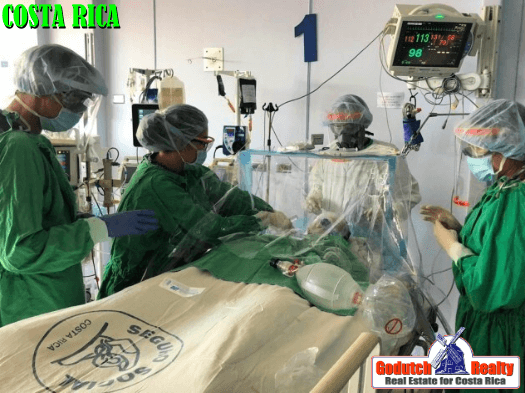
Medical attention
However, we have no medical attention coverage whatsoever once that 60 day period expires. It’s pretty simple and not too expensive to receive non-emergency, non-specialized medical attention when needed. Just make an appointment or simply walk into a private physician’s office (“clinica”) and wait to be seen. Once you’re a resident, you can go to the local CAJA medical clinic.
Or do you only require a prescription drug? Then head to the nearest “Farmacia” (pharmacy). Many have a physician or the equivalent of a physician’s assistant on staff. They can examine you in a private room and prescribe medication to, hopefully, cure your ills. Pharmacists in Costa Rica have the authority to dispense prescription drugs and medications over the counter if your malady merely requires a medicinal cure.
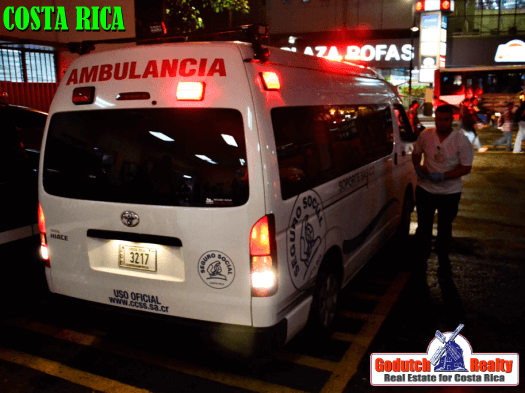
Ambulance
If it’s an after-hours minor emergency, call the La Cruz Roja – Red Cross station. There’s one in every town of any size in Costa Rica. You will get emergency care and pay for services on the spot. If it’s a bit more serious, they will stick you in an ambulance. They will deliver you to the nearest regional CAJA hospital or to one of the private hospitals, depending on your request.
If private, it’s probably Clinica Biblica in San Jose or CIMA in Escazu. And, don’t be surprised if the ambulance ride there may be free.
As an aside, many communities with a sizable population have a private ambulance subscription service. These provide on-site medical triage and delivery with skilled EMT-type technician attendants. It’s a bit like having monthly emergency medical/ ambulance insurance.
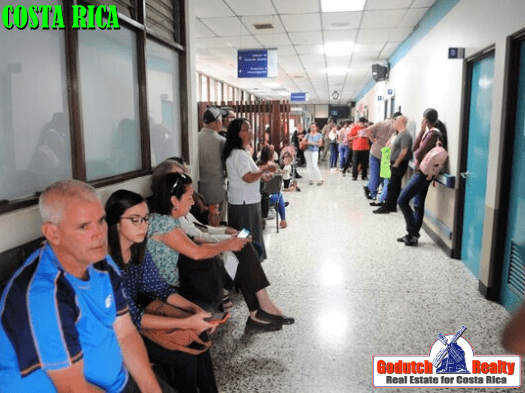
No Insurance?
You do not have insurance coverage? Then you can get medical attention at a CAJA hospital or at a private hospital. Expect to pay out-of-pocket for your care. Experienced ex-pats tend to avoid receiving care at many of the regional CAJA hospitals. They believe medical attention to be superior at a private facility.
The upside for medical care is that you’ll be paying much less for an uninsured stay or procedure than it would cost you in the States.
The Caja
I’m still a little fuzzy on how long it takes to receive specialized tests or procedures at a CAJA facility if you are not in the CAJA medical system. I think that if they know you are paying out-of-pocket, you may get priority attention.
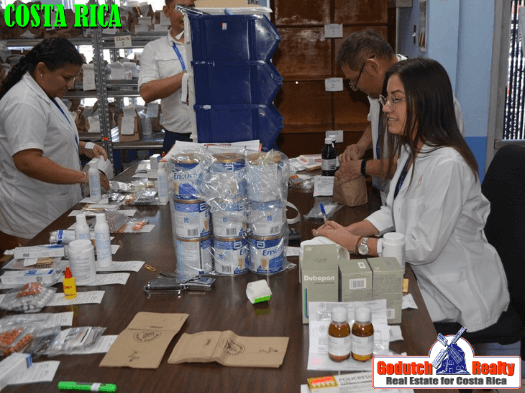
A very long wait to get certain procedures and tests performed seems to be normal in the CAJA. The wait within CAJA can often be minimized: find a physician in private practice who is also a part of the CAJA system. They can usually get you at the front of the queue.
While this practice called “biombo” is strictly illegal, it has been around for years. It’s ingrained in the medical culture. Your wait can also be reduced if you opt for private medical coverage, either insured or uninsured, in a private medical facility.
A Medical Specialist
What if you have a serious medical situation that requires a specialist when you have no medical insurance? Well, this situation happened to me recently. I immediately hit the Internet to get an idea of what problem I had. And, of course, how much to worry about it.
When I thought about the symptoms, I knew that I needed to get to a doctor ASAP. In order to communicate my problem accurately, I knew my lack of Spanish. Additionally anatomical Spanish. I would require being seen by an English-speaking physician-specialist.
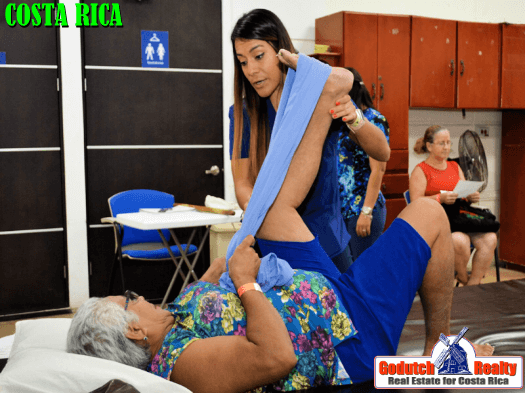
I had no experience with specialized medical attention in Costa Rica. Therefore, I contacted friends for recommendations of English-speaking physicians that might be able to help me. And of course, my symptom had presented itself on a Friday night. The first physician I contacted on Saturday morning via email was a specialist that practiced at CIMA. When I did not hear back from him by Monday morning, I went with Plan B and called a GP in the next town that also had a lab.
Hey, I didn’t say getting specialized medical services in Costa Rica was a slam dunk. My saga continues in next week’s blog. Happy Easter. Pura Vida.
The Author
The author of this blog, Ticonuevo, is a US expat who moved to Costa Rica. He and his wife used the services of GoDutch Realty to purchase a property in Costa Rica. In his blogs, Ticonuevo describes his own experiences of taking the step of moving to Costa Rica and getting a new life started.
If you like this blog, subscribe to my newsletter by clicking the banner below.
I DO want to remind our readers that we appreciate any referrals you can send us. Also, please remember the GoDutch Realty agents when you talk about your home in Costa Rica, we appreciate it.

























